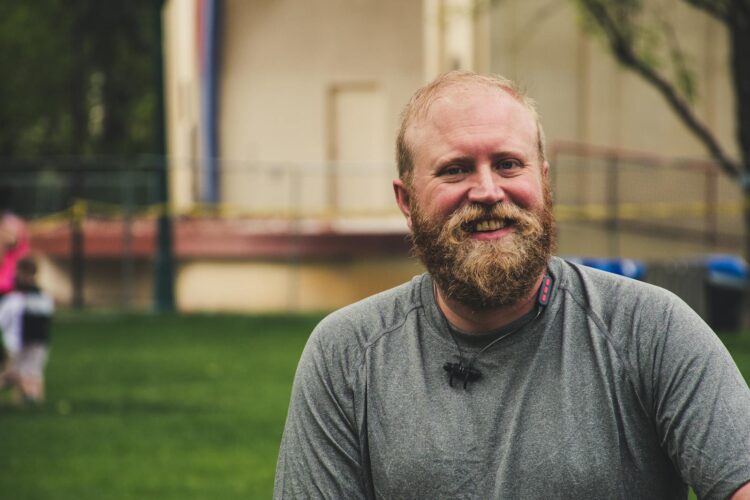
Emotional intelligence isn’t about being overly nice or constantly calm. It’s about knowing yourself, understanding others, and responding in ways that don’t cause more harm than good. Some people naturally have it. Others develop it over time, usually the hard way. Either way, emotional intelligence shows up in everyday moments—and once you notice the signs, you start seeing them everywhere.
You Pause Before Reacting

You don’t blurt out the first thing that comes to mind. Even when you’re angry or frustrated, there’s a beat—a pause where you check yourself. That space between stimulus and response is where emotional intelligence lives. It doesn’t mean you’re bottling things up. It just means you’ve learned that not everything needs an instant reaction, especially if it’s one you’ll regret later.
You Own Your Mistakes Without Spiraling

You know when you’ve messed up—and you say so. You don’t get defensive or start blaming others. You apologize sincerely, and then you try to do better. What sets you apart is that you don’t dwell in shame for days. You know that accountability doesn’t have to be self-punishment. It’s just the next step forward.
You Can Sit With Discomfort

You don’t rush to fix every awkward silence or heavy moment. You understand that some situations feel bad—and that’s okay. Whether someone’s grieving or, angry or unsure, you don’t need to fill the space with empty words. You’re comfortable just being there, even if it’s uncomfortable. That quiet presence? It says a lot.
You Don’t Take Everything Personally

When someone snaps or goes quiet, your first thought isn’t, What did I do? You might feel a little sting, sure, but it doesn’t take over. You’ve learned that people act out of their own stress, not because of you. And instead of jumping to conclusions, you give them space. That little pause—the one where you choose grace over hurt—that’s where your emotional intelligence shows up.
You Can Express Needs Without Guilt

You’ve learned how to ask for what you need—whether it’s space, reassurance, or just a little help—without feeling like you’re too much. You don’t beat around the bush or turn it into an argument. You just speak up. And the best part? You’ve stopped feeling bad about it. You know now that being honest about your needs isn’t selfish—it’s how the real connection works.
You Can Set Boundaries Without Explaining Everything

You’ve stopped over-explaining why you can’t make it or why something doesn’t work for you. Emotional intelligence gives you the clarity to say no kindly and firmly. You don’t owe people a novel every time you protect your peace. A simple, respectful boundary is enough—and you don’t feel guilty for setting one anymore.
You Don’t Try to “Win” Every Conversation

You’re not in it for the last word. You’ve realized that proving a point isn’t always worth losing the relationship. You can disagree without being dismissive and listen without planning your next comeback. Emotional intelligence shows up when you care more about understanding than winning—and when you know silence can be more powerful than proving you’re right.
You Notice When Something’s Off

You can tell when something isn’t right, even if no one says it out loud. A shift in tone, a hesitation, or a glance that lingers a little too long—those quiet signals don’t slip past you. You don’t make a scene or push for answers. You just check in calmly and gently. That kind of awareness doesn’t come from guessing. It comes from really paying attention.
You Applaud Growth—Even If It Isn’t Yours

You’re genuinely happy when others succeed, even if you’re still figuring things out. That quiet jealousy that used to creep in? It doesn’t take over anymore. Emotional intelligence helps you separate someone else’s wins from your own worth. You celebrate growth, progress, and healing—because you know there’s room for everyone to rise.
You Handle Criticism Without Falling Apart

Even if it stings a little, you don’t spiral when someone offers feedback. You listen. You ask questions. You separate tone from truth. And when the critique is valid, you use it to grow—not to beat yourself up. Emotional intelligence lets you see feedback as information, not an attack on your character.
You’re Self-Aware—Even on Bad Days

You can catch yourself in a bad mood without taking it out on someone else. You might not be able to fix it right away, but you’re aware of it. You say things like, “I’m just off today,” instead of pretending you’re fine while snapping at everyone. That level of awareness? It keeps your emotions from running the show.
You Don’t Chase Closure That Won’t Come

You’ve stopped begging people to explain their actions or make things right. Emotional intelligence helps you understand that some people won’t give you closure—and that’s okay. You’ve learned how to give it to yourself. You process, you grieve, and you move forward without waiting for someone else to hand you peace.
You Know When to Step Away

You don’t stay in draining conversations or relationships just to keep the peace. When something feels off or repeatedly harmful, you choose distance—not out of coldness, but out of self-respect. Emotional intelligence teaches you that preserving your energy sometimes means walking away, even if you care deeply.
You Speak Kindly—to Others and Yourself

You don’t weaponize your words, even when you’re upset. You’ve learned that kindness doesn’t mean weakness—it means control. And that same kindness extends inward, too. You’re not perfect, but you’ve stopped calling yourself names for every mistake. Emotional intelligence shows up in your inner dialogue just as much as it does in conversations.
You Understand That Emotions Are Temporary

You don’t panic when you feel overwhelmed. You’ve been through enough to know that emotions come in waves—and that they pass. You don’t make permanent decisions based on temporary feelings. You give yourself time to cool down, reflect, and respond with intention. That ability to ride the emotional wave without crashing? That’s emotional intelligence in action.

